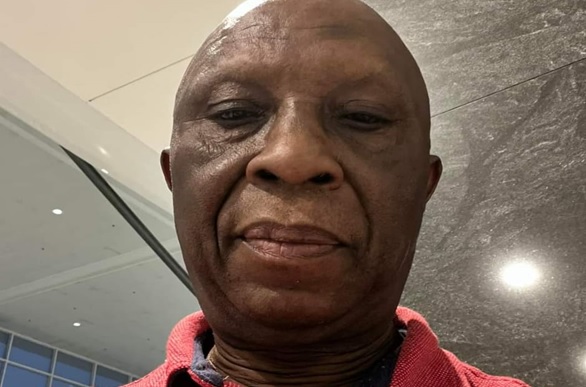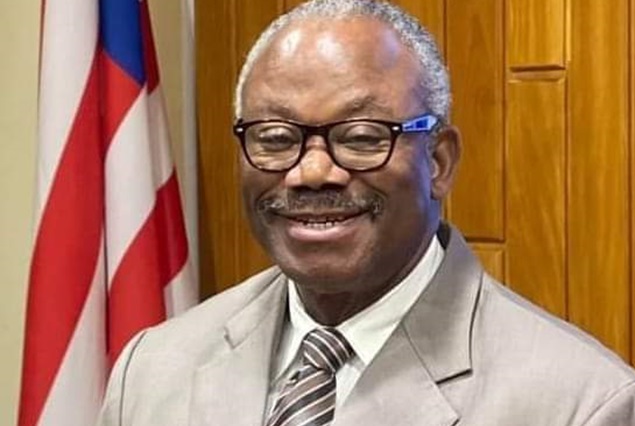MONROVIA – Liberian economist Samuel Jackson has sharply criticized the approach taken by President Joseph Nyuma Boakai’s Assets Recovery and Property Retrieval Taskforce (AREPT), predicting a series of failures and disappointments. Jackson’s remarks, laced with a tone of vindication, suggest a deep-seated concern for the direction of Liberia’s governance under the new administration.
Today, in a Facebook post “In the I-told-you-so category,” Jackson begins, “Asset Recovery would be a fiasco. You don’t appoint a committee to recover assets. I said it. No one listened.” His words point to a fundamental flaw in the taskforce’s design, highlighting the need for a more comprehensive and strategic approach to asset recovery.
Economist Jackson voiced his criticism of the AREPT following activist Martin Kollie, a member of the 15-member AREPT, expressed his concerns in a letter to Chairman Cllr. Edwin Kla Martin regarding the leadership and operational methods of AREPT. In his letter dated May 5, 2024, Kollie addressed the Chairman, stating that he observed a message from Cllr. Martin on WhatsApp and felt compelled to clarify his position henceforth.
Activist Kollie’s letter indicates his dissatisfaction with the leadership approach of Cllr. Martin, citing an “amateur and unsystematic model” that has been in place since March 2024. He expressed frustration at the lack of adherence to ethical, procedural, legal, and professional standards, despite his efforts to advocate for them.
Furthermore, Kollie highlighted the importance of consensus within AREPT, emphasizing that all members should have a say in administrative, financial, legal, and operational matters. He criticized the emergence of an “authoritative clique” within AREPT that excludes dissenting voices and ignores valuable contributions.
Kollie also mentioned collaborative efforts with AREPT’s Special Advisor, Mr. Alex Cuffy, to work on technical policy documents, which were allegedly disregarded by Cllr. Martin’s leadership. The letter from Kollie underscores growing discontent within AREPT regarding leadership and decision-making processes, suggesting a need for reforms to ensure transparency, accountability, and inclusivity within the taskforce.
However, Jackson goes on to critique the government’s handling of other issues, such as traffic management, budgetary planning, and the prosecution of war crimes. “I said you cannot restrict motorists from the main streets without proper planning and an implementation strategy. IG backpedaled,” he notes, indicating a lack of foresight and coordination in policymaking.
His observations extend to the broader political landscape, as he remarks on the challenges faced by young activists and the perpetuation of old-guard politics. “I said the old guys in the government led by Grigsby would frustrate the young people who marched in the pupu water. The young people are complaining,” Jackson remarks, suggesting a disconnect between the aspirations of Liberia’s youth and the entrenched interests of the political elite.
Perhaps most damning is Jackson’s prediction regarding the War and Economic Crime Court. “I said War and Economic Crime Court would be pomp and circumstance. No serious effort to put anybody on trial. Watch over the next 2 years. Nothing will happen. It’s over,” he asserts, casting doubt on the government’s commitment to accountability and justice.
Jackson concludes his statement with a defiant stance, anticipating backlash for his outspokenness. “I predict they will cuss my nutbag and left seed when I publish this post. Hustler. Old man. Married to my granddaughter. Killer. Destroyed Liberia. Looking for consultancy. Etc.,” he predicts, highlighting the personal attacks he expects to endure for his critique.
Despite the criticism, Jackson remains resolute in his convictions. “I will sleep well knowing that I had the courage to speak out early on the coming fiasco,” he declares, underscoring his commitment to holding Liberia’s leaders accountable and advocating for a more just and equitable future.
It should be recalled that on March 7, 2024, President Joseph Nyuma Boakai announced the formation of the 15-member Assets Recovery & Property Retrieval Core Team following the issuance of Executive Order No. 126. Cllr. Edwin Kla Martin, a Counselor-At-Law and former Chairperson of the Liberia Anti-Corruption Commission (LACC), was named as its chair.







